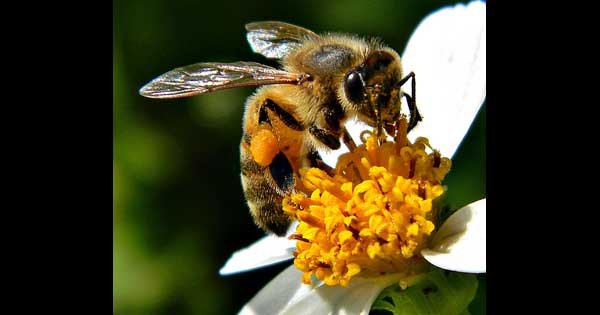
In the spring of 2007, I overheard two teens on the New York City subway discussing the bee calamity. One girl said to the other, “Hey, my friend told me that all the bees are disappearing,” to which her fellow rider replied, “Yeah, we’re all gonna die in four years when the food runs out.”
More than four years have passed, and we’re not dead yet. Nor has all the food run out, even though bees pollinate about a third of the world’s agricultural crops, from apples to pumpkins. Anxiety over Colony Collapse Disorder—a mysterious malady in which honeybees suddenly and inexplicably abandon their hive—has not dissipated, though. If anything, the bee crisis has recently reached a crescendo, with a third of honeybee colonies lost in the United States in the winter of 2012-2013. A combination of causes has been blamed for the bee deaths—from parasites to viruses to a class of pesticides called neonicotinoids, which appear to be extremely toxic to honeybees.
One factor that appears to have been overlooked is lack of honey in the bees’ diet, which may be depriving these critical pollinators of important nutrients that help them detoxify pesticides and pathogens.Even though the average hive can produce up to 60 pounds of honey per season, honeybees in the United States are typically fed on a diet of sugar water or high fructose corn syrup, both considerably cheaper. Yet honey is the principal source of energy for adult bees, and it keeps them warm in the winter.
Bee expert May Berenbaum of the University of Illinois at Urbana-Champaign has discovered that substances in pollen and honey—in particular, a component called p-coumaric acid—trigger bee genes that code for enzymes that break down pesticides and pathogens. Without honey in their diet, bees may become more vulnerable to pesticides applied to their hives to kill parasitic varroa mites that feed on bees’ body fluids. They may also be more susceptible to the viruses carried by the mites, as well as to agricultural pesticides. And a new study shows that honeybees may be exposed to as many as 35 different pesticides in pollen.
“A a diet of honey supports higher rates of detoxification than does a diet of sucrose or high fructose corn syrup,” Berenbaum told me. She can’t say whether bees’ lack of honey is contributing to Colony Collapse Disorder, especially since it isn’t clear whether CCD is a single phenomenon or a morass of pestilence and pollutants. “That said,” she added, “the absence of honey from their diet may well compromise the ability of bees to process and tolerate pesticides.” Ponder that, the next time you stick your spoon in the honey jar.


